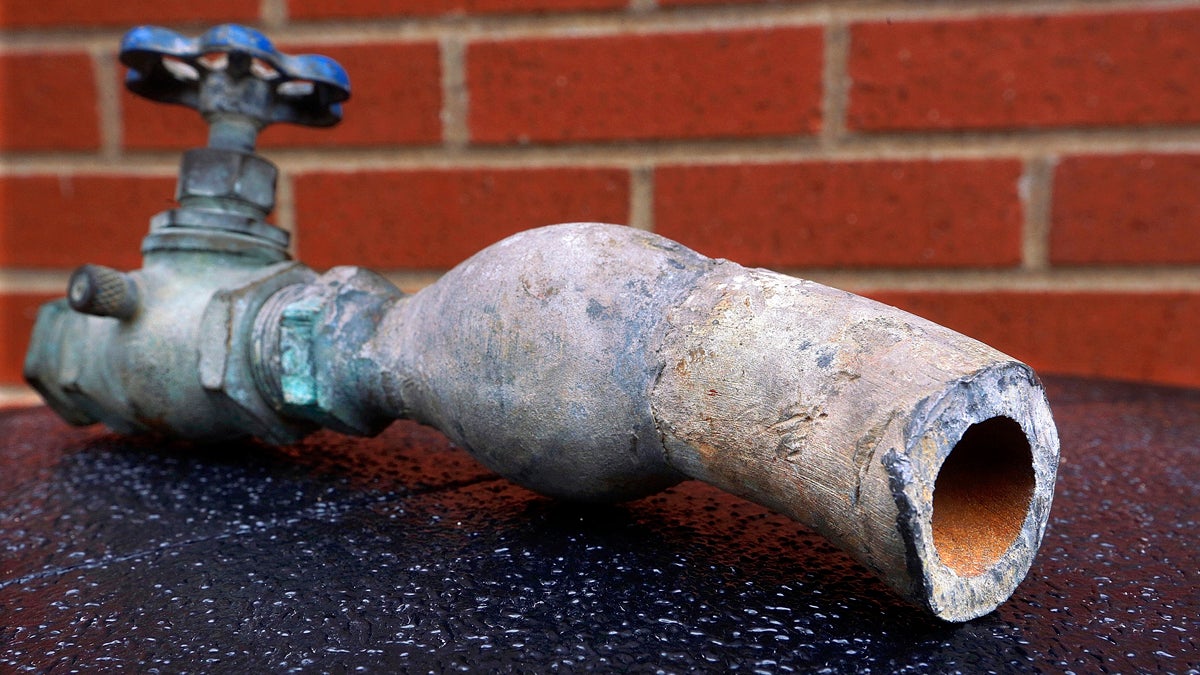More than 100 Pennsylvania water systems reported lead levels above federal limit

An example of a lead pipe found in Galesburg
Most of the water systems were private, although some small municipal systems also exceeded the lead limit.
More than 100 water systems in Pennsylvania have had lead levels above a federal threshold at least once since 2013, according to an Associated Press analysis of the data.
Most of the water systems were private, although some small municipal systems also exceeded the lead limit.
About a quarter of the systems above the limit served schools and day care centers, says Meghan Hoyer, a data journalist at the AP. “The exposure to lead has been linked to problems with mental development, especially in young children, so the school findings were particularly surprising,” Hoyer said.
She said some schools in other parts of the country have switched to bottled water and let kids use tap water only to wash their hands.
The Environmental Protection Agency requires water systems to inform customers when lead levels exceed the federal limit.
But those notices can be confusing, Hoyer says. “They’re often worded in a way that says ‘we found lead in your water, but as long as you run your water before you drink it, you’ll be fine.’ Critics say there should be no lead in the water and that the federal limit is actually too high,” she said.
There are more than 3,000 water systems in the state. Lead in water typically comes from service lines that connect buildings to a water system. Some cities, like Madison, Wisconsin, have launched programs to replace lead pipes.
The nationwide AP analysis found that nearly 1,400 water systems serving 3.7 million Americans in 49 states have exceeded the federal lead standard at least once since 2013.
WHYY is your source for fact-based, in-depth journalism and information. As a nonprofit organization, we rely on financial support from readers like you. Please give today.


